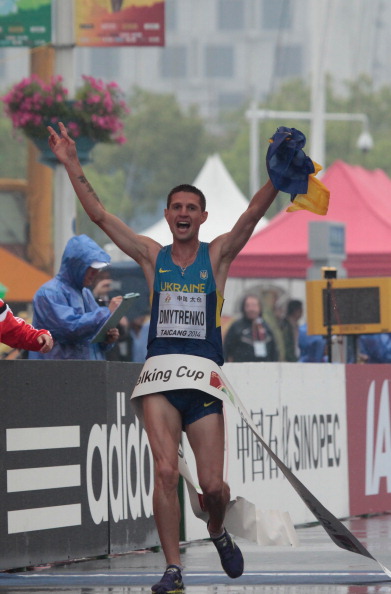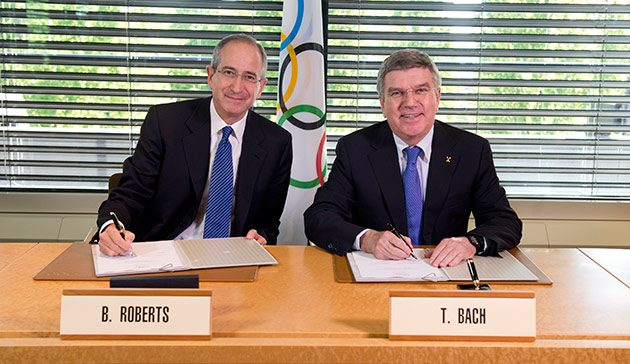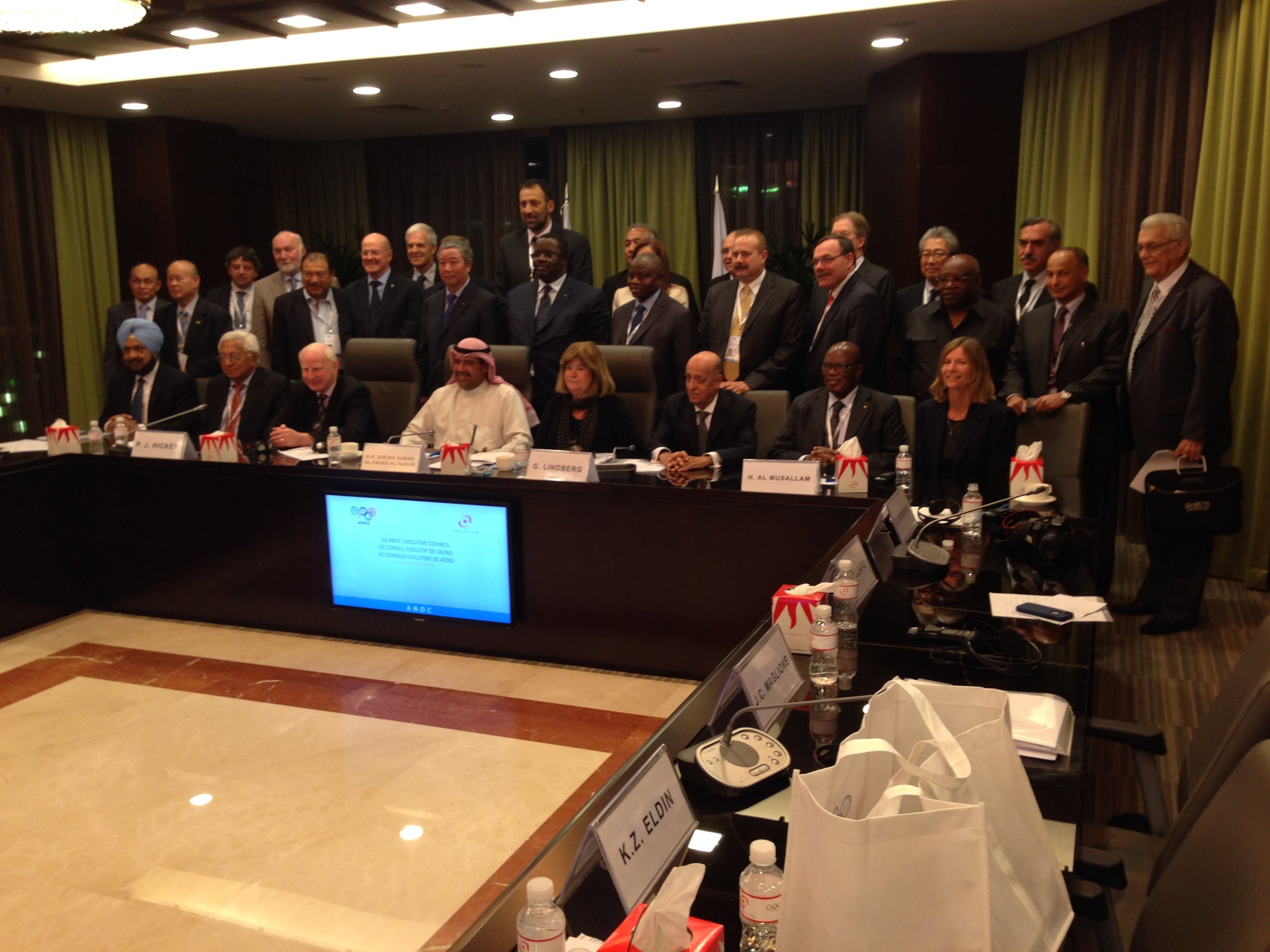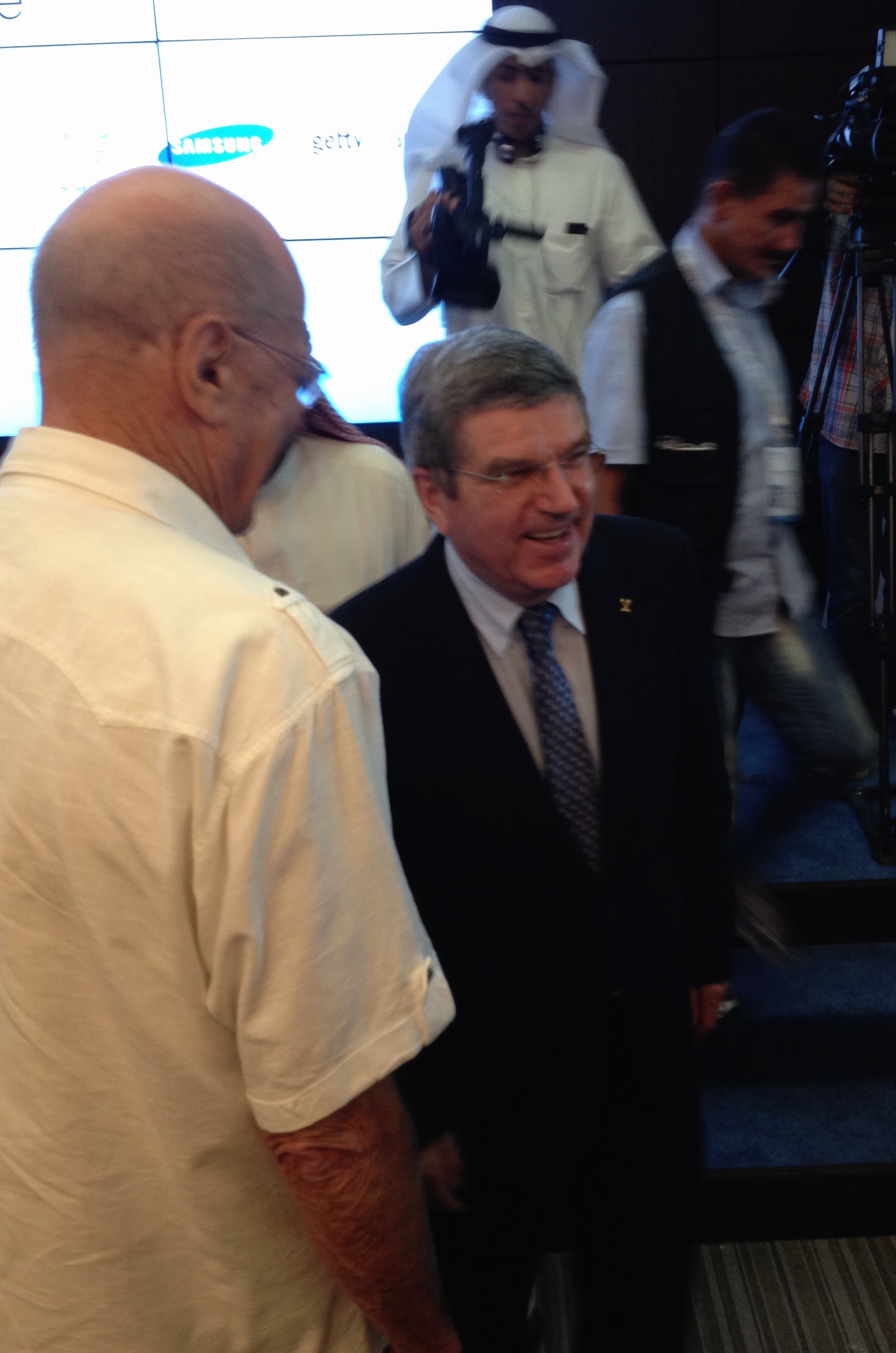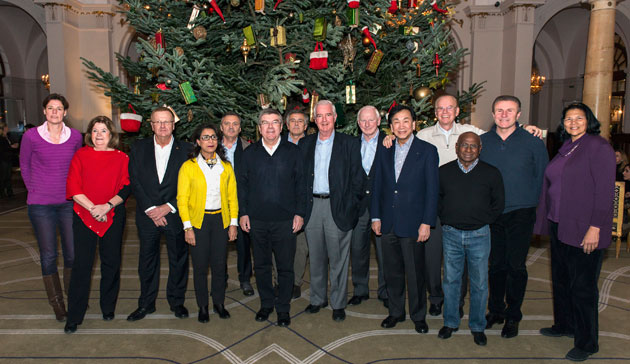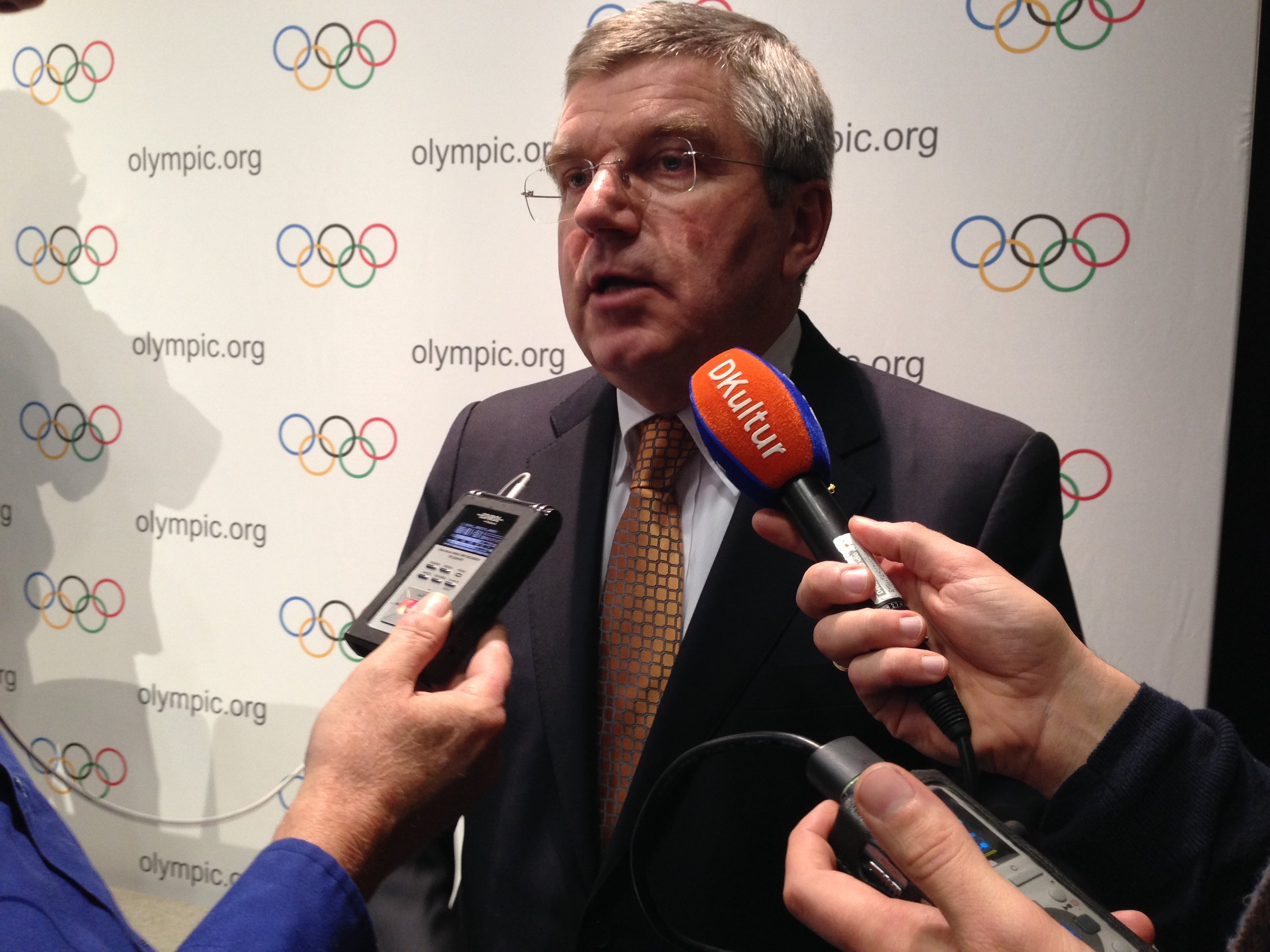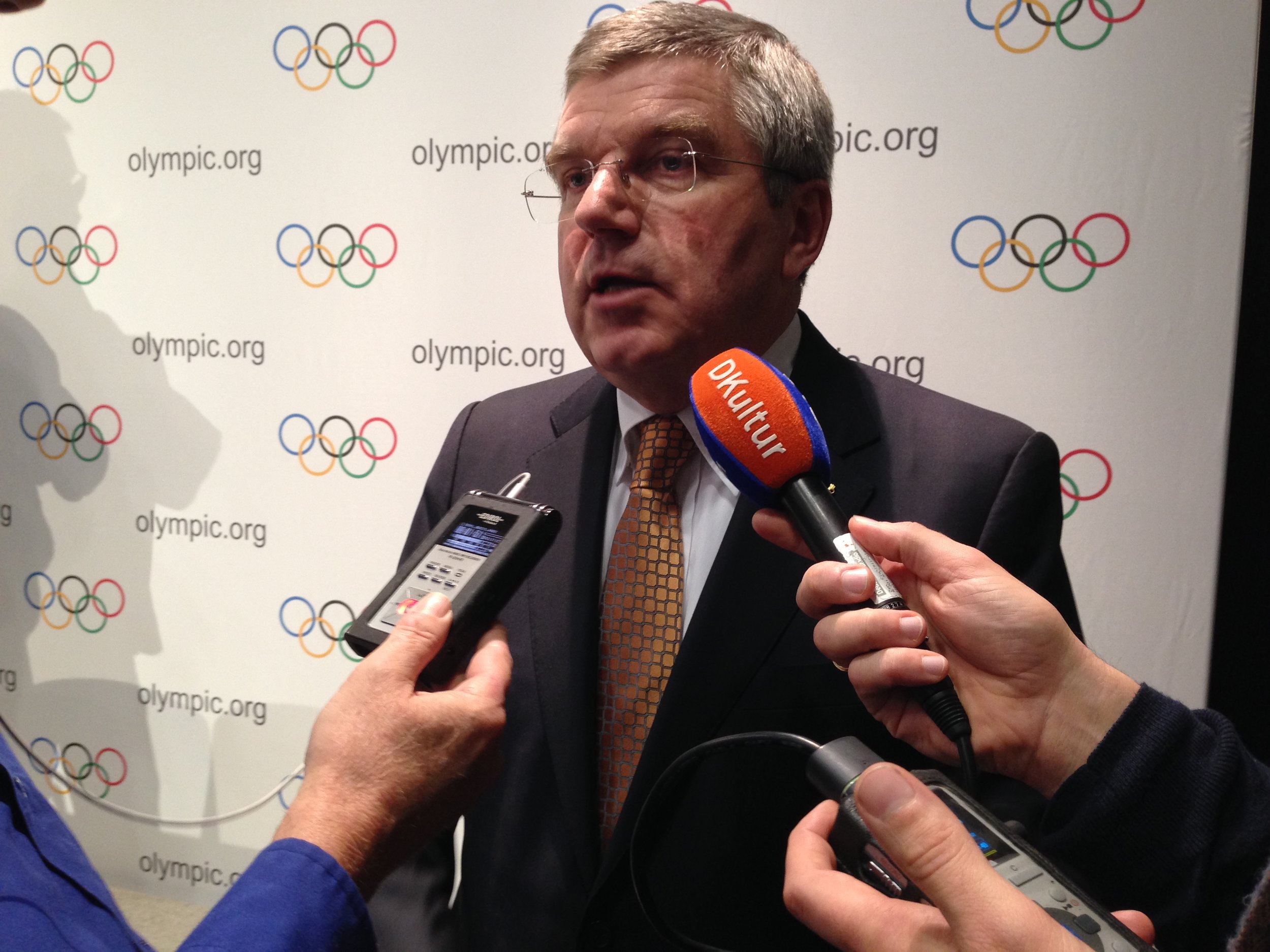The International Olympic Committee on Wednesday announced it had established an “emergency fund” of $300,000 to benefit Ukrainian athletes, one of the most intriguing moves in recent memory. It underscores the will and decisiveness of the IOC president, Thomas Bach of Germany, and his bid — which he has made a point of repeated emphasis in these first months of his term — to stake out separately delineated spheres for what is sport and what is politics. Recall that the very first call Bach received upon his election last September was from Russian president Vladimir Putin.
It also comes as the days move steadily toward the IOC’s early July executive board meeting. There the list of 2022 bid cities will be finalized. Will Lviv, Ukraine, be among them?
Skeptics would say that of course 300,000 reasons to keep going would be helpful — particularly when it seems apparent Almaty, Kazakhstan, and Beijing will go through, leaving the European possibilities of Lviv, Oslo and Krakow, Poland, and both Krakow and Oslo facing distinct financial or political challenges. Indeed, Krakow is up against a May 25 referendum.
In a bizarre turn early Wednesday, someone — no one knows who — sent out a “news release” declaring that Sergej Gontcharov, the head of the Lviv 2022 bid, had been fired. There was no letterhead; the sentences were awkwardly constructed and, moreover, filled with spelling and other errors; the release was quickly dismissed as a fake. A motive also remains unclear.
As difficult as it might be for the skeptics, Sergey Bubka, the IOC executive board member who is also president of the national Olympic committee of Ukraine, said the explanation for the $300,000 fund — one wholly unconnected to the bid — is simple enough.
Bach, he said, has a genuine humanity.
Recall, too, that Bubka, the 1980s and 1990s pole vault champion, was one of the other five candidates for the IOC presidency. Now read these words:
“I think, generally, the president he was himself an Olympic champion,” in fencing at the Montreal Games in 1976. “He was a great athlete.
“Through all this period,” meaning the turbulence affecting Ukraine, “in Sochi, after Sochi, we are in contact all the time. When we are in Turkey,” in April for the SportAccord convention and the IOC executive board meeting, “we had a meeting — you can see him as a human and as a president who cares. He has feelings with a heart.
“The bidding process, all these things, of course it’s important for him to have good bids, different representation from different parts of the world. But I can see he is human.”
Bubka also said, “He is a person with a heart. It is really touching.”
And: “This help is not connected in any way to the bid. I am confident. No way.”
The IOC statement announcing the fund -- from Bach himself -- started by saying he was following the “political, economic and social developments in Ukraine with the greatest attention and growing concern. Also the situation of the Ukrainian athletes, including those who have so successfully represented their country in the recent Olympic Winter Games in Sochi, which has dramatically deteriorated.”
Ukraine won two medals in Sochi, both in biathlon, gold in the women’s 4x6-kilometer relay and bronze for Vita Semerenko in the women’s 7.5km sprint. The gold was the nation’s first in two decades.
The day after they won, the four women were invited to USA House for a private reception, the Americans operating on the belief the Ukrainians perhaps had nowhere else to celebrate; the Ukrainians got a standing ovation. The Americans played that one right down the middle, of course; earlier in the Games, Putin visited USA House as well, where he mingled and took photos.
“For all these reasons,” Bach went on in the IOC statement, “I repeat my appeal of Sochi to all political leaders involved to enter into a summit dialogue in the Olympic spirit of mutual respect and peace.”
At the United Nations on April 28, Bach reiterated the main points he laid out in a speech there in November and, as he said in in Wednesday’s statement, underscored at both the opening and closing ceremonies at the Sochi Games.
This, in part, is what he said April 28 in New York:
“One of the basic principles of sport is non-discrimination for whatever reason, including political ones. Sport is the only area of human existence with a truly universal law. This universal law is based on global ethics, fair play, respect and friendship. This means for sport and sport organizations that we have to be politically neutral without being apolitical. This means for our partners that they have to respect this responsible autonomy of the sport organizations and the universal law of sport. Otherwise, international sport with its unifying, peace-building, dialogue-enforcing and respectful efforts cannot exist.”
Back to Wednesday’s statement:
“To help the Ukrainian athletes — wherever they come from in Ukraine and whatever their background — and to help mitigate their difficult situation, the IOC has established an emergency fund of $300,000.”
The money, it said, is to go through the Ukrainian Olympic committee for both training and competition.
What it means, Bubka said, is that now, as the summer season gets underway, athletes should once again be able to go to various training camps and meets. The NOC had naturally enough been funding those activities. Now the ministry’s funds for the NOC — not enough.
Ten days ago, in Taicang, China, the Ukrainian men’s race-walking team delivered a surprise 20km team victory at the IAAF World Race Walking Cup, highlighted by 28-year-old Ruslan Dmytrenko’s first-place finish, Ukraine’s first-ever individual medal at the Cup, in a national-record 1:18.37.
Igor Glavan finished seventh, in a personal-best 1:19.59; Navar Kovalenko, 10th, in 1:20.11.
Bubka, who is also an IAAF vice president, was there for the moment, and said, “What happened in China was really amazing.”
“I joined them and I saw the happiness of our athletes, our coaches, our team. This was really for our people — the history of our team, the individual success, this is really nice, to feel the team spirit and to feel society together in this particular place.”
He also said, “These last couple of months, we have emphasized that we represent all the nation. From east to west. From north to south. We are different athletes. We are different coaches. We are one team, we are united — to represent the dream.”
And: “I believe we will overcome. The most important thing is peace.”
There will be skeptics. This is an inevitable part of life. Bubka also said, referring to the IOC president, “He cares about the Olympic family of Ukraine. He cares about the movement. This is the real solidarity. We see it and we appreciate it very much. This is important help in the difficult moment of our history from President Bach.”

